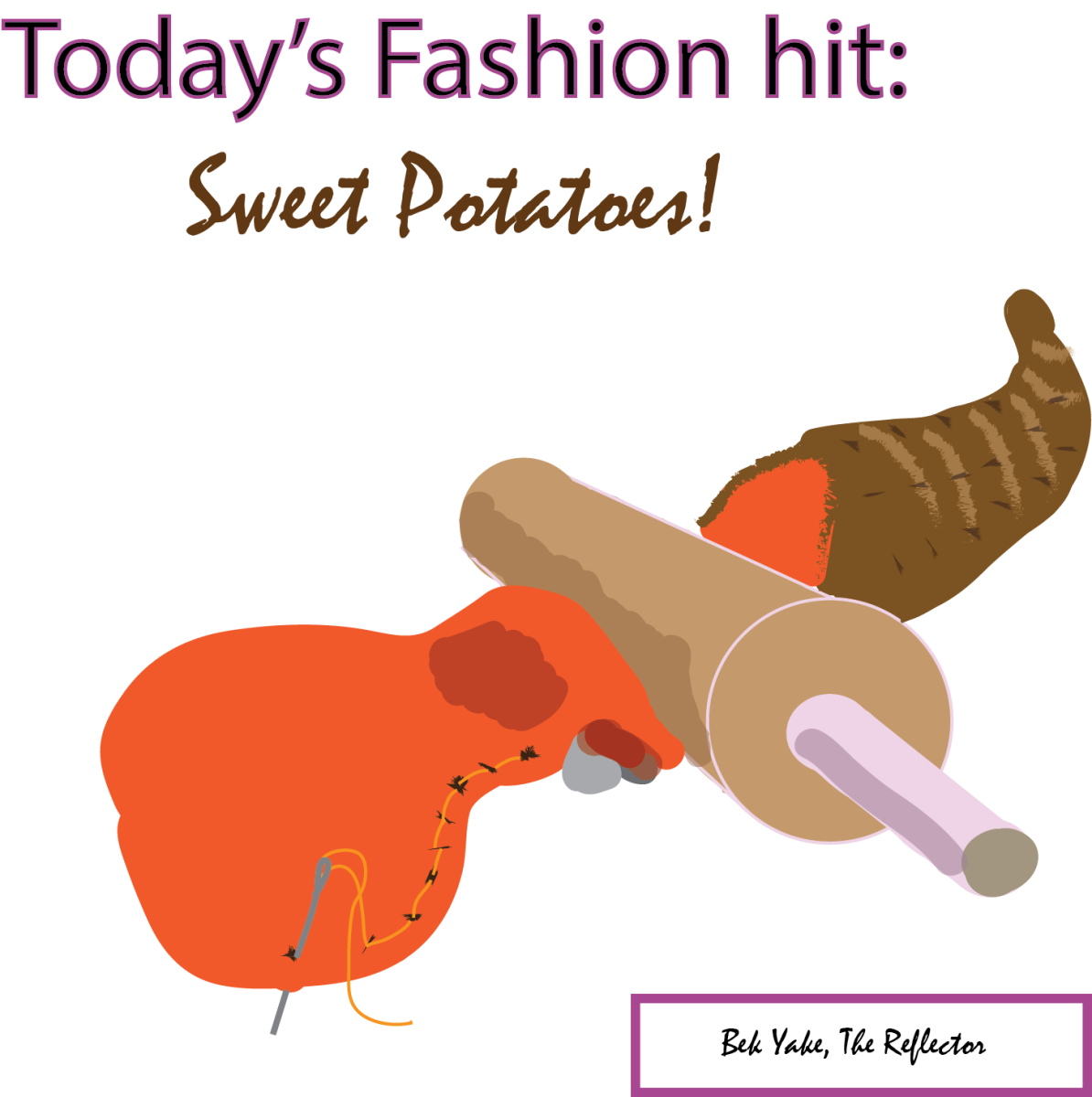In order to create a more secure market for domestic cull sweet potatoes, the Mississippi Sweet Potato Challenge was formed at Mississippi State University. This gives MSU students the chance to be included in a project which teaches them about research while also providing sweet potato gardeners with a possible new business forming within the state.
Sweet potatoes are grown by about 160 Mississippi farmers and contribute 82 million dollars to the state’s economy according to spchallenge.msucares.com.
Dr. Charles Freeman, assistant professor of fashion design and merchandising from the school of human sciences, has helped with the project since its beginning three years ago.
Freeman said the cull sweet potatoes cannot be sold for the best market value in comparison with others of larger sizes, so they are trying to find new ways to use these smaller sweet potatoes.
Fleshia Gillon and Mikayla James, both fashion design and merchandising majors, are partners who came up with the idea of creating leather from the cull sweet potatoes. They began working together in a class in fall of 2015. Gillon and James create this leather by using sucrose from the potatoes.
“Each semester the Sweet Potato Challenge actually present their findings and their product to a panel to determine if they’re going to continue on as a company to work through the Center for Entrepreneurship and Outreach to start a company, a brand and a product and really launch it,” Freeman said.
Freeman said the Sweet Potato Challenge team wrote a research abstract for the International Textiles and Apparel Association Conference, which is taking place this year in Vancouver, Canada.
Freeman said the abstract and research was accepted as a new kind of innovation in textile research with there being no one else doing it right now even from an academic standpoint. He said faux leather is big trend in fashion itself today.
“You see vegan leather as being a very big trend,” Freeman said. “They’re making handbags and accessories and jackets and wallets and things that are appealing to a certain fashionable consumer who’s eco-conscious, eco-sustainable, and, so, I think that Fleshia and Mikayla are right on trend with developing this product.”
Freeman said it is a new idea in the fashion industry and has not yet caught on, but he thinks it is something that will be important in the future as more people begin look for alternative sources for leather.
Gillon and James were granted lab space in three different buildings on campus. In addition to working together, they also worked with Dr. Freeman and other faculty, which they relied on for resources. Freeman said their collaborative nature and their willingness to work with other faculty in bringing different groups together made them able to progress quickly through the project.
Gillon, who serves as the secretary on the executive board for the National Retail Federation Student Association, said a recipe was already available to the public to make synthetic leather.
“You can look it up on Google and you can actually create it yourself if you wanted to, but they used regular sugar,” Gillon said. “So we went to all these meetings and stuff like that to meet with the different farmers to see what all’s in a sweet potato. It has a lot of Vitamin A, a lot of sugar, a lot of water and so we were doing the process of elimination and were like why not substitute the sugar, that’s in this process, and substitute it for the sucrose that we can extract from the sweet potato.”
James, who started on the project as a freshman, said the project has shown him how to work with people.
“It’s taught me that choosing the right partner for a project is really important,” James said. “It’s also taught me about dedication and not giving up on something that might seem either hopeless or pointless.”
In November the two will present their research next to faculty, researchers and professors in Vancouver. Freeman said for two undergraduates to accomplish this and have the opportunity to present their research and work at a major international conference is huge.
Categories:
From farmer’s market to fashion shows:
Reed Gaddis
•
August 25, 2016
From farmer’s market to fashion shows: MSU students create new venues for sweet potatoes and fashion
0
Donate to The Reflector
Your donation will support the student journalists of Mississippi State University. Your contribution will allow us to purchase equipment and cover our annual website hosting costs.
More to Discover

















































































